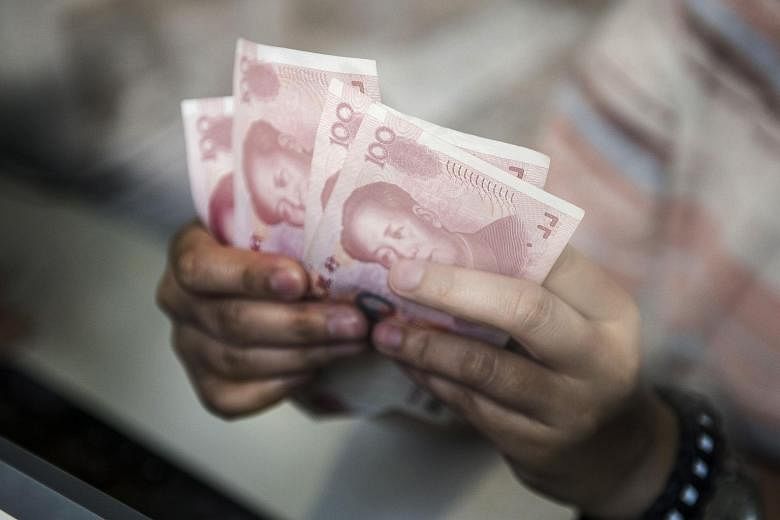China's decision to devalue the yuan again yesterday hammered financial markets across the region as stunned investors came to terms with the prospect that the world's second-largest economy is in far worse shape than first thought.
The yuan tumbled nearly 1 per cent to 6.3890 to the US dollar following the devaluation. That in turn sent the Singapore dollar down 0.7 per cent to a five-year low of 1.4107 to the US currency, while the Malaysian ringgit slipped to 4.0335 to the greenback, its weakest since 1998. The Indonesian rupiah traded at its weakest in 17 years.
There was carnage in equity markets as well. Singapore was the second-worst performing bourse after Jakarta, down 2.9 per cent, its biggest one-day fall this year.
Local bank shares were jettisoned amid concerns over China's economy while weaker oil prices took their toll on commodity and offshore marine counters.
The STI has lost 4.2 per cent over the past two trading days and is down 9.2 per cent this year, making it the third-worst performing index in Asia after Jakarta and Taiwan.
If Tuesday's 1.9 per cent devaluation - a "one-off" move, said Chinese regulators - caught markets off guard, yesterday's 1.6 per cent cut left investors in a state of disbelief. All eyes will be on what may occur today, traders said.
But Morgan Stanley warned against being too bearish on currencies because China will likely follow its devaluation with fiscal stimulus measures to boost the economy.
And some see a weaker Singdollar as a boon. Mr Thomas Pek, managing director of Tai Hua Food Industries, said it could boost exporters' competitiveness against others in the region. "We are very happy. If the Singdollar stays strong, how are we to compete with our neighbours like Malaysia and Indonesia?" said Mr Pek, also president of the Singapore Food Manufacturers' Association. His company exports soya sauce to more than 40 countries.
While further yuan weakness could affect his sales to China, growing exports to the Middle East and Europe, his two biggest markets, should mitigate that, he said.
A spokesman for the Ministry of Trade and Industry said yuan weakness may dampen China's imports from Singapore and reduce Chinese tourist arrivals but this is likely to be contained for now.
Local interest rates also reacted to yesterday's devaluation, which helped to bolster the greenback and accelerated capital outflows.
The key three-month Sibor (Singapore Interbank Offered Rate) rose from 0.87908 per cent on Tuesday to 0.9345 per cent yesterday while the three-month SOR (Swap Offer Rate) increased from 1.07461 on Tuesday to a year-high of 1.16341 per cent.
The Monetary Authority of Singapore said the Singdollar remains within its policy band despite upheavals this week, adding that it "stands ready to curb excessive volatility in the dollar".


